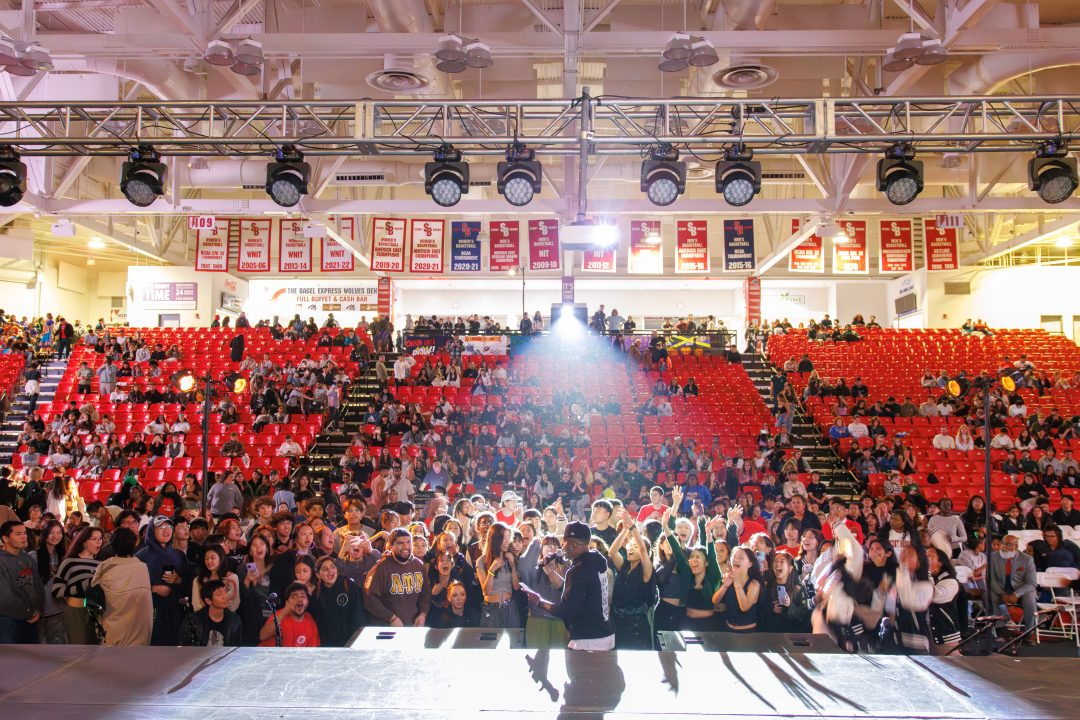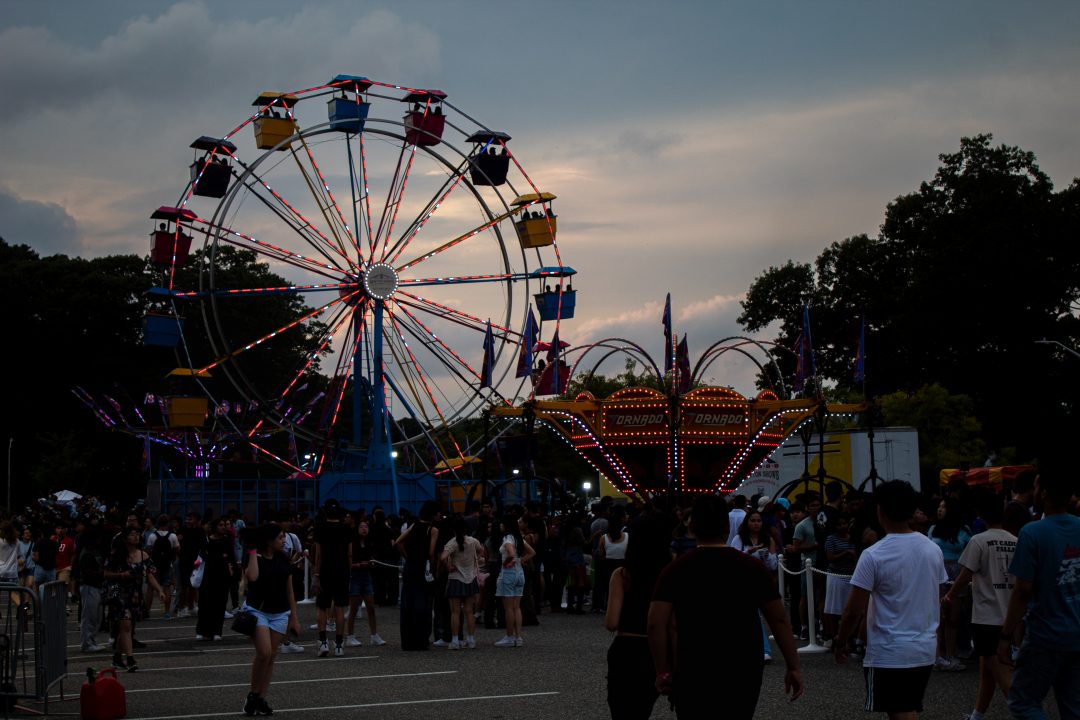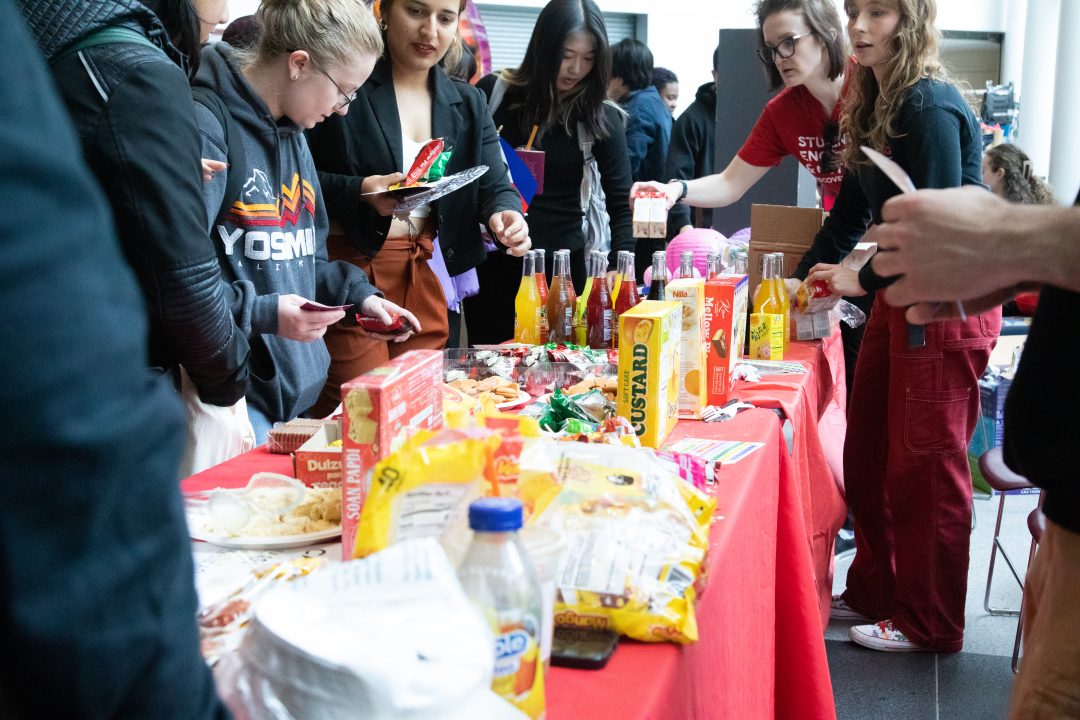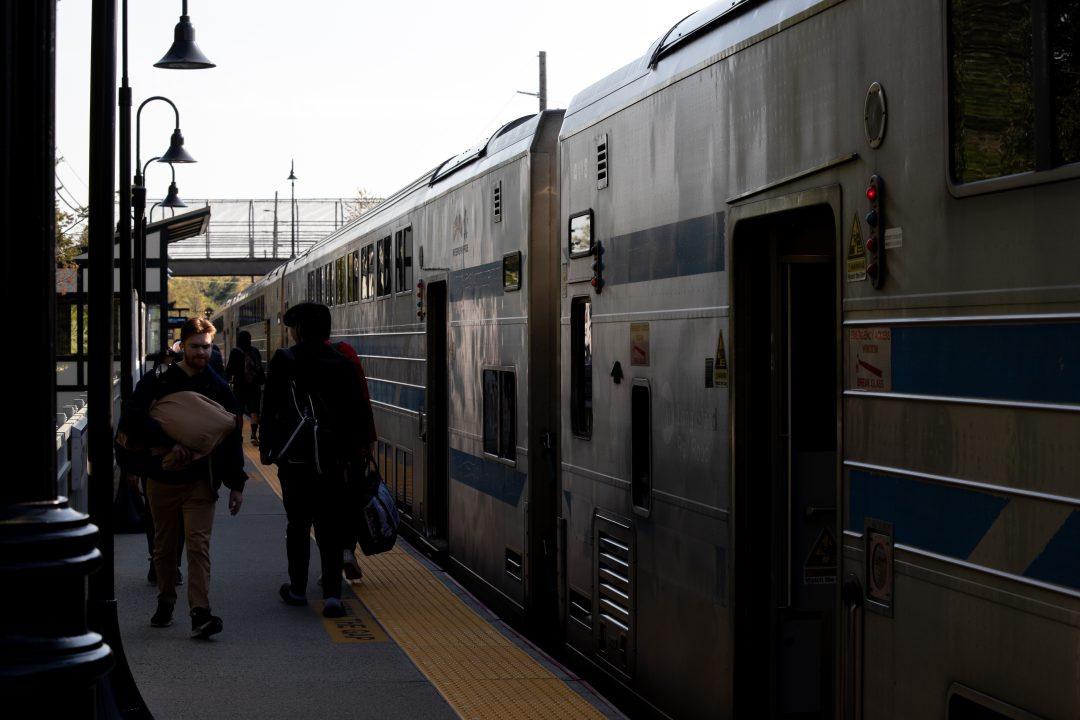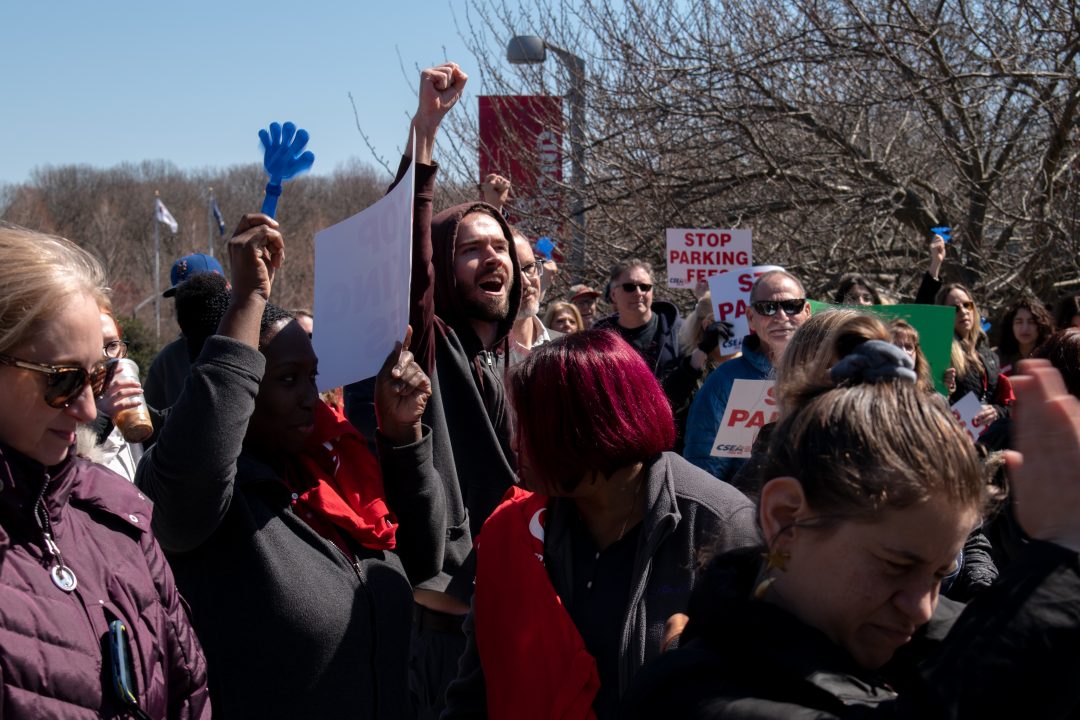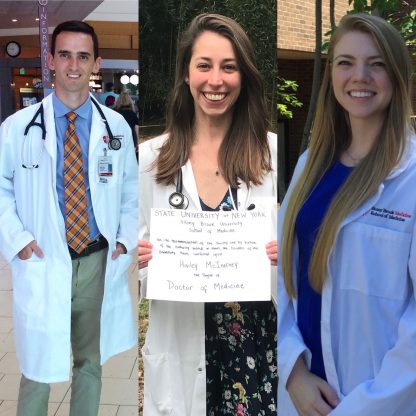
The Renaissance School of Medicine graduated its fourth-year medical students two months early on April 8, with 52% of the class agreeing to serve immediately as “Assisting Physicians” at Stony Brook University Hospital and Winthrop Hospital.
The newly-minted physicians will assist in hospital efforts to staunch the course of COVID-19, which, as of April 11, has claimed the lives of 8,627 individuals in New York.
Renaissance School of Medicine Dean Dr. Kenneth Kaushansky welcomed the Class of 2020 to a virtual graduation ceremony, hosted over Zoom, in the spirit of social distancing.
“Despite the unusual circumstances that surround us, it remains a tremendous pleasure for me to welcome you to this convocation as we celebrate 122 outstanding Stony Brook School of Medicine students, men and women, advancing their career as inquisitive, compassionate, and caring physicians,” Kaushansky said. “Just think about the healthcare crisis surrounding us at the moment. What we do here — what we do now — will define us as physicians, as a profession, and as a healthcare system.”
Dr. Michael Brown, a physician scientist and recipient of the 1985 Nobel Prize in Physiology or Medicine for his work on cholesterol metabolism, also spoke to the Class of 2020. Brown recalled how his graduating medical school class was drafted into the war in Vietnam in 1966 — many of his peers were stationed in jungles after being forced to leave their loved ones.
“But today’s challenge is much more threatening,” Brown said. “Your enemy is not restricted to far-off Asia. Your enemy threatens our own society, and not only soldiers and sailors. It threatens our spouses, children, our parents, our grandparents — everyone we love.”
More than half of Stony Brook School of Medicine graduates will remain in New York to complete their residencies, with students matching at Columbia, Cornell, New York University, Mount Sinai and other residency programs in New York state. Students also matched at Yale, Harvard, University of Pennsylvania, Johns Hopkins and UC San Francisco.
Twenty-five of the 122 medical graduates will remain at Stony Brook University Hospital to complete their residency, a record number for the institution.
While the virtual ceremony was fitting considering social distancing protocols, it has upended how many of these physicians envisioned graduating medical school.
“There’s nothing virtual that can ever be as meaningful as a real life graduation,” Dr. Hailey McInernery said.
McInerney, who will start her OB/GYN residency at Mount Sinai Hospital on July 1, will start working on April 12 at Stony Brook University Hospital in the meantime. She is one of the 49 physicians who will aid in COVID-19 related efforts at Stony Brook prior to starting residency.
Joining her is Dr. Danielle O’Hara, who matched into cardiothoracic surgery at the University of North Carolina at Chapel Hill, and Dr. Anthony Schramm, who matched into anesthesiology at New York Presybyterian/Columbia University Medical Center.
For both McInerney and O’Hara, the virtual ceremony lacked a very important component — family.
McInerney participated in the graduation ceremony from her living room. She was looking forward to being hooded, an act of recognition of having completed a doctorate degree, by her mother, a veterinarian. But social distancing prevented McInerney from even being in the same room as her.
“My mom was certainly a big inspiration for me going into the field,” McInerney said. “I think having her there would have been really special. And instead, I didn’t even get to watch [the ceremony] with her, or graduate in the same room as her.”
While O’Hara was able to celebrate the virtual ceremony with her partner, who decorated their home the morning of the ceremony, an in-person graduation ceremony would have been even more special.
“I was raised by a single mom, so for her to lose that opportunity to come support me was definitely a loss,” O’Hara said.
Though the virtual ceremony was missing “pomp and circumstance,” O’Hara still enjoyed seeing her classmates at the virtual ceremony.
“It’s really beautiful that we all got to graduate together and see each other even though we couldn’t physically be together,” O’Hara said. “It was nice to be able to sit together and enjoy the moment and really be present in the moment.”
Early graduation has placed the class of 2020 on the frontline as healthcare workers, prepared to “not withdraw from [their] patients in their time of need,” as sworn in the Hippocratic Oath they recited at graduation. All of the graduates took a COVID-19 preparedness course for academic credit, which included lessons in personal protective equipment and critical care training, in accordance with current literature.
Schramm found the Class of 2020’s response to the pandemic to be especially inspiring.
“I can’t really say enough about how inspired I am by my classmates,” Schramm said. “Without hesitation they rose to the occasion.”
Though the curve is flattening, deaths due to COVID-19 will lag behind new cases.
McInerney anticipates losing patients, potentially even more than the number she might lose during her first year of residency.
“It will probably impact my career in ways I can’t even begin to imagine,” she said.
McInerney, O’Hara and Schramm said they’ve found a sea of support in the Stony Brook community.
All three have been paired with residents or interns they can contact for guidance under the Big Sibling program run by the Department of Medicine. They spoke highly of the training they received from the medical school.
Schramm said that Stony Brook has “stayed ahead of the curve,” by informing faculty, physicians and medical students about best practice guidelines.
McInerney said she’s confident in her training and spoke to how her role as an assistant physician would be one way to give back to the Stony Brook medical community as it fights against COVID-19.
“I’m not going to be alone and I’m joining teams of doctors who are excellent — and I know they are excellent because they are my teachers. I’m feeling very well supported by Stony Brook,” McInerney said. “I can’t think of a better way to give back to the community.”
O’Hara voiced a similar sentiment. For her, the pandemic has revealed the importance of community among healthcare workers.
“I get to contribute what I can to help relieve the strain that some of my colleagues will be feeling in a way that I think is very unique and special,” O’Hara said.











